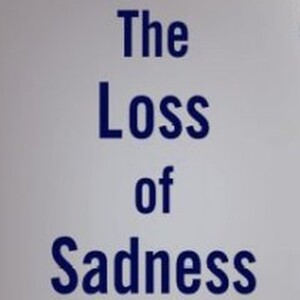Episodes

Tuesday Apr 11, 2023
Tuesday Apr 11, 2023
Retired historian Dr. Jeremy Black has now allowed me to interview him three times. THREE TIMES. He gets an award for entertaining my curiosity.
In each interview, he dances through a historian’s perspective and answers both detailed questions about fiddly bits of the world’s past as well as giving detailed and thoughtful big-picture answers about war, religion and life in general.
In this episode, Jeremy discusses A History of the Second World War in 100 Maps (2020, The University of Chicago Press). He kicks off by explaining some wanted the book to be yet another chronological map book (1939, 1940, etc., etc.), but he pushed back to organize it along thematic threads and made sure many countries’ maps were represented.
Interested in history, maps, World War II, propaganda, racism, why German Nazis weren’t as great as some say they were (including themselves), and, lastly, why we ignore old-fashioned weapons like artillery in favor of obsessing over drones? Jeremy Black will interest you.
P.S. Jeremy likes maps so much, he’d make a map book a year (he’s already got a rail map idea). Publishers, he’s proven his prolific output (he has published 11 history books in 2022 alone).
Caveat: There’s a delightful grandfather clock chiming a few minutes in. I left it in, because the chiming is really charming. Why am I suffering with these terrible smartphone beeps when the time could be announced in this way in my own apartment?
To Feed Further Curiosity:
Jeremy talked with me about Agatha Christie and Sherlock Holmes here. He talked about the big picture of war throughout human history here.
Jeremy recommends other books of his at the end of the podcast. Here are some samples from his corpus:
A Short History of War (I read it; I liked it)
Strategy and the Second World War
Rethinking World War Two: The Conflict and Its Legacy
I talked about maps (and old books) with college professor John Krygier here.

Tuesday Apr 04, 2023
Tuesday Apr 04, 2023
I regularly search on Amazon for “veterinary business” and “veterinary management” and “business” books. Sometimes to buy, but usually, at first, to find new guests for a veterinary podcast.
That’s how I stumbled into Aaron Gruben’s new book A Theology of Beasts: Christians and Veterinary Medicine. The book brought together two things that fascinate me: DVMs and divinity. I bought it. I read it. I liked it.
The first half of the book is Dr. Gruben’s deep dive into Christians he found in ancient and modern history who contributed to and focused on animal medicine. The back half is a collection of some philosophy and theology that Dr. Gruben has looked into that touch on how Christians can think about their place in the world as women and men of God whose ministry could include healing animals, soothing animals’ suffering, and modeling love for Creation to their clients.
Those who might enjoy the book? Christian veterinarians, Christian pet owners, Christian agriculturalists, Christians with horses (early vet med is a lot of horses), and Christians with teenagers thinking about a career in veterinary medicine.
Those who will enjoy the podcast? Anyone curious about vet med, animals and religion.
Let’s dive in …
To Feed Further Curiosity:
Dr. Gruben also writes time travel fiction and has developed curriculum focusing on chivalry. Chivalry, I wondered. Tell me more. So I asked, and he delivered, including book recommendations for someone who knows next to nothing about the Crusades. Then the author of one of the books Dr. Gruben read about the Crusades agreed to do a podcast interview with me. And then Dr. Gruben wrote me some questions to get me started in my interview with the guy who wrote the book Dr. Gruben liked. Convoluted? Sure. Amazing synchronicity? Heck yeah. That podcast interview, hopefully, will be coming soon ...

Tuesday Mar 28, 2023
Tuesday Mar 28, 2023
There is the hypnosis done for entertainment—on the stage or in a room of conference-goers. Like, say, this. A hypnotist gathers a group, asks the members to relax, and watches them, with their eyes closed, to see if they’re receptive to the hypnosis. The hypnotist kicks out the ones who are “faking it” or aren’t relaxing. Then the others cluck like chickens or get hot or cold or act silly.
There is another hypnosis, built on the same principles, used as a therapy technique. Ray has used hypnotherapy to help people stop smoking, give up other bad habits, and explore their trauma. That’s the front half of this podcast episode.
In the back half of this episode, we wander into a world less scientific, more “woo woo” and still wickedly fascinating: hypnosis used for past life regression. A woman on Oprah.com wrote about her good experience trying it. A professor at University of Virginia wrote about his concerns about its use. Here’s the Wikipedia article on it. Decide for yourself.
However, I’d urge you to listen to Ray’s poignant account of her very real, very felt experience from past life regression that gave her some insight into her irrational love of water and her obsession with certain colors.
Oh, my experience with hypnosis? I went on two dates with a nice Jewish woman years and years ago, and our first date was to a comedy hypnotist show. I volunteered. She did not. I sat, closed my eyes, and followed the hypnotist’s directions. Breathe this way. Breathe that way. You’re hot. You’re cold. You feel this way. You feel that way. I never felt lost or out of sorts—I was happy doing whatever the hypnotists. But I was always myself; I never lost myself. And that’s how Ray talks about hypnosis. You need to want to be hypnotized, which means you’re not out of control. You’re aware of what’s going, and you’re allowing it to happen. Some people can do it. Some people, in that moment, aren’t ready. Some people hate that.
Caveat: I step on Ray’s introduction (“My name is Ray”), because I’m blathering about some other person’s introduction when we get started. That’s all. Apologies.
To Feed Further Curiosity:
If you want to know more about hypnotherapy, Ray recommended, hey, just go search “hypnotherapy” on the internet and evaluate things yourself. If you want to know about its use in past life regression, do the same thing. But she said she did like a particular book on past life regression, Many Lives, Many Masters, by psychiatrist Dr. Brian L. Weiss.

Tuesday Mar 21, 2023
Tuesday Mar 21, 2023
Everybody’s talking about mental health these days. That's, by and large, a good thing.
But did you ever wonder why the incidence of diagnosed depression has been skyrocketing even as we talk more openly about our mental and emotional issues? What's going on?
That’s what I talk to retired professor emeritus Dr. Allan Horwitz about. Dr. Horwitz has tilted at the DSM (The Diagnostic and Statistical Manual of Mental Disorders) windmill with books like All We Have to Fear: Psychiatry’s Transformation of Normal Anxieties into Mental Disorders (2012) and The Loss of Sadness: How Psychiatry Transformed Normal Misery into Depressive Disorder (2007). It was that 2007 book that caught my eye recently. In it, Dr. Horwitz and Dr. Jerome Wakefield argue that in the late 20th century, the psychiatric community chose to remove context from its depression diagnoses. Despite centuries (millennia even) of ancient thought and modern psychiatric approaches to anxiety, sorrow and depression that poignantly considered and recognized how great sadness could be an orderly, normal response to terrible circumstances (romantic breakup, divorce, death, illness and other rough life events), American diagnosticians chose in editions of the famous and widely used DSM to ignore almost all context for painful episodes of sadness (save a short period of time for grief after the death of a loved one).
Drs. Horwitz and Wakefield made the pitch to the psychology and medical community that terrible sadness sometimes might be a normal, healthy response in some cases, not a disordered response needing immediate medical intervention … and, of course, pills.
To boil it down: Sometimes you feel bad about life, but you should feel bad about life, because life, in that moment, is bad and hard and hurtful. You may not be crazy! You may be functional and responding appropriately to crappy things. He’s not saying all the people with diagnosed anxiety disorders, depression or trauma should not seek help. He’s saying in some cases, if he had his way, he would counsel “watchful waiting” for medical health professionals to see whether things improve with changes in life circumstances.
Did the psychiatric community listen for later editions to consider more context in diagnosing Major Depressive Disorder? Listen and find out …
Caveat: Nowhere is Dr. Horwitz saying people with mental illness or struggling with mental problems should not seek help. He’s only saying we might not be doing the best service to individuals in need of help—either psychiatric, medicinal, psychological, etc.—if we are diagnosing too many people with more severe mental illness than they actually have.
To Feed Further Curiosity:
A fairly comprehensive listing for Dr. Horwitz’s journal articles and books appears here. Other interesting stand-outs besides the two referenced earlier for non-academic readers who are deeply interested in the topic could also include What's Normal?: Reconciling Biology and Culture and Anxiety: A Short History. All of Horwitz’s works are accessible to laypeople but are deeply researched enough and often focused towards clinicians wrestling with the big picture of “Who’s sick?” and “How do we know it?” and “Are we using the right tools or benchmarks to assess the difference between normal, painful psychic pain and mental disorders?”
Also recommended by Dr. Horwitz is the book Good Reasons for Bad Feelings: Insights Into the Frontiers of Evolutionary Psychology by Dr. Randolph Nesse. Dr. Horwitz says the book is very accessible and covers many of the hypotheses and new ideas that have come out of theories that try to figure out how our current feelings might have developed over the millennia, what they might be trying to do, and how they might be supporting or sabotaging us in the modern world today.

Tuesday Mar 14, 2023
Tuesday Mar 14, 2023
Veterinarian Dr. Gene Maxwell remembers someone coming up to him after a show in his town where he’d played some easy-going tunes on his guitar, influenced by folk, country, bluegrass, jazz, whatever. And she said his music was relaxing. He was elated inside. Because that’s what sitting and playing guitar does for him today: The tones of the guitar relax him like a feedback loop of calm.
He says everyone’s life at the veterinary hospital is better if he gets 20 minutes of guitar time in before showing up. And he’s never felt the pull to make his life all about the music. The guitars and the equipment to make those heart-pleasing tones sit around his house, and they’re there when he needs them.
Find out what music on the side feels like to this practice-owning animal doctor. Have you neglected that little itch inside to get some deep-down healing from a strum, a blow, a hum, a chant, a thump?
To Feed Further Curiosity:
You can listen to the first album from the band that included Dr. Maxwell, The Company I Keep on Spotify and other streaming services right now. If you want a physical copy of that CD or the follow-up album, they're available $10 each from Dr. Maxwell himself; email him at imbcreative@yahoo.com It would mean a LOT to me if at LEAST one listener bought them the way I did. They're some of the last CDs I bought and held onto ...
Dr. Maxwell has very helpfully put his released solo stuff from the past few years on ReverbNation here.

Tuesday Mar 07, 2023
Tuesday Mar 07, 2023
I mean, he doesn’t just study Xenophon. Dr. Gregory McBrayer teacher political philosophy and international relations as Director, Core Curriculum, and Assistant Professor of Political Science at Ashland University.
I’ve been on a kick lately reading excerpts from late-19th-early-20th century series. (Find my writing here.) And each time I wrap up a thinker, I thought, “Hey, wouldn’t it be neat if I talked to somebody who knows that thinker better to see if my impressions were right, what I missed, and what cool rabbit trails other people fall down when it comes to that thinker?”
And Dr. McBrayer very kindly agreed to answer some of my questions about Xenophon. The thinker seemed the most modern and readable to me, and Dr. McBrayer agrees. He loves Xenophon, which made this interview pop with enthusiasm for me. Especially interesting is his perspective on the ancient Greek. See, Xenophon was used by students for many, many years to learn and translate from. Why? It’s straight-forward. But Dr. McBrayer says, hey, sure, it’s straightforward and direct. And other folks think Xenophon was the “dumb jock” at the ancient Greek thinker table. But is there more to Xenophon than meets the eye? He sold me on it. Listen to the episode, and maybe you’ll be sold, too. We also talk American politics, touch on Plato and Aristotle, and have a good old time …
To Feed Further Curiosity:
A series of translations (Cornell University’s Agora Editions) of ancient and medieval works includes two Dr. McBrayer mentions. One is edited by him. The other he calls out as his favorite translation of Xenophon’s semi-fictional tale of Cyrus the Younger, which he recommends as folks’ gateway drug to the ancient Greek:
The Shorter Writings by Xenophon, edited by Dr. McBrayer with one selection translated by him
The Anabasis of Cyrus by Xenophon, translated by Wayne Ambler.
Dr. McBrayer co-hosts a podcast with two scholarly friends titled The New Thinkery. The discussion wanders from sarcastic ribbing, funny philosophical observations, and very in-depth looks at both philosophy most would consider obscure (medieval Islam, for instance) as well as takes on more familiar films and literature. If you like smart-people-discussion podcasts and don’t mind lots of philosophical digressions and wanderings, then scroll through the titles and find a book, movie or topic you’re interested in and try it out. Dr. McBrayer’s co-hosts include David Bahr (editor of The American Mind) and University of Colorado, Boulder, professor Dr. Alex Priou.
Dr. McBrayer is involved with the Ashbrook Center at Ashland University, “an independent, non-partisan nonprofit with the mission of restoring and strengthening the capacities of the American people for constitutional self-government.” The website teachingamericanhistory.org eats up some of Dr. McBrayer’s time in his quest with others to offer primary documents of American history and government for the world to read online.

Tuesday Feb 28, 2023
Tuesday Feb 28, 2023
This is my big Episode 50. That’s, like, a milestone, right? And it’s with a nice guy I know, so I like it even more.
I worked with Greg for years at a veterinary publishing and event company. Now, he’s working on revving up his business in commercial photography, which I think is interesting. What is commercial photography? In Greg's case, he specializes in tabletop product pics, headshots, and pet portraits. You know, not artsy-fartsy photographs (although he takes those, too, and they’re real purty), but work for businesses. The kind of shots that leave you smiling at an executive’s facial expression, or curious about a new beer, or intrigued by packaging of just about anything.
In this interview, he drops some tidbits about two basic mistakes people make taking amateur pictures at the end, so stay tuned …
Audio note: Greg’s audio is a little crackly sometimes. Hey—nice guys and gals agree to record interviews with me remotely, and I don’t harangue them about their setup, alright? ALRIGHT? Love you all! :)
To Feed Further Curiosity:
You can find Greg Kindred Photography here. He takes good pictures of anything, he stays calm and collected, and he’s creative.
Here’s a pic of me and Greg with ex-co-workers with that company. I found it in the set of “Events" pics Greg has on the above website. He’s the tall guy in the shades far left. I’m the tall guy in the middle back with the mostly shaved head. We both have foam fingers because we rule. He looks about the same years later. I’ve chonked
Greg is planning to crowd-fund publishing costs for a book of Kansas City breweries. He’s already got interest from local retailers to sell it. I’ve seen the proof-of-concept book, and it’s awesome. I don’t care about beers or Kansas City that much (I’m from Cali, so sue me), but the book is really pretty and interesting. Hurry up, Greg.

Tuesday Feb 21, 2023
Tuesday Feb 21, 2023
I stumbled onto the writing of David Grayson as I reflected on my (sometimes) daily reading of The University Library. Grayson's way of seeing the good in people and letting curiosity turn his feelings of urban oppression into natural wonder were inspiring. Open, curious conversations with people are kind of what this podcast is about.
So, I went on the hunt for someone to talk to about the guy whose method of talking to people was so inspiring.
And I found Nick Grabbe (grab-AY). Nick worked for decades as a journalist in Amherst, Massachusetts. Born in Washington, D.C., and custom-built to work as a big-city journalist, Grabbe turned to what he calls “simple living” in the small Massachusetts town he moved to. That’s what Grayson himself extolled for many years in his columns written for newspapers in the early 20th century.
But, it turns out … there was no David Grayson. It was a pseudonym. Who was this Grayson guy? Grabbe will explain. And along the way he’ll tell us about journalism and the appeal of a less hectic way of life—both of which held Grayson’s attention, too, as you’ll discover ...
More to see:
Want to learn more about a simple-living, small-town-focused journalist’s career? Buy Nick's self-published Print and Privilege: Newspaper Writer Tells His Story (2021, Off the Common Books).
Do you want to try out a David Grayson book, or an essay or character study or two?
Gutenberg’s offerings (website)
Internet Archive’s offerings; just ignore the ones that look newer (website)
Read more from David and his wife on the simple-living blog Adventures in the Good Life.
If we have titillated your curiosity, you can learn more from an online exhibit about Grayson and an event Nick spoke at. The website features photos and letters like the ones Grabbe references in this podcast.
Read Nick’s entire essay/speech/presentation on Grayson he delivered at the event referenced above.

Tuesday Feb 14, 2023
Tuesday Feb 14, 2023
I met Noah when he came to a big synagogue in the Kansas City Metro and spent a weekend with us there. I was teaching kids songs every Sunday, so he trooped around with me and my brilliant guitar-playing assistant and interacted with every age group with us during the day. He says in this podcast that he loves getting down with the kids on the ground and interacting with them in the moment, and that is exactly what I remember most about his presence: He was right there with you.
I still play a few of his songs, old and new, at my current Sunday School gig, and I always loved his energy and … really, his being he brings during music. And that’s funny, because he plays with my opening question. I tell guests, “You’ll start with, ‘I’m BLAH, and I do BLAH.’” And, well, he takes me literally. But then he gets on a philosophizing train in the moment about how “I am” can be so powerful—what we tell people about ourselves, how we feel about ourselves, what we really are. And he comes to a much wider statement when he gets to the end of it here, and I dug it.
Then we go on to talk about how Noah got into music, got into Jewish music, got into and out of rabbinic school, and got into his current place. He still makes Jewish music. He still visits and works with synagogues. But he’s dipped back into his old love of theater recently, and he took the COVID break from shul-touring to make a new, different kind of music, which he’ll talk about here.
Anyway, I always wanted to find out how Noah got started and why he does what he does in his way. And he very kindly told me. And now you.
If you like his vibe, you'll also like him here:
> M.O.V.E., a BeMajor Production by Noah Aronson, on Apple Music, Spotify, or in his album release concert on YouTube
> The BeMajor Podcast, with links here
> BeMajor, which offers Noah’s guidance on music in wellbeing, music theory, songwriting, and more
He doesn’t market these in this podcast, but I wanted you to know, if you like him, there’s more to like.
P.S. This is two podcasts in a row where something was a little wonky about the audio. In this case, Noah sounds fabulous, and I sound scratchy/staticky. Thankfully, I shut my piehole most of the podcast.
P.P.S. My old boss in her new career as kick-ass executive coach is thinking about healthy feedback right now, and so my last question was about feedback. His answers were great. Thanks for the question, Marnette.

Tuesday Jan 24, 2023
Tuesday Jan 24, 2023
Recently retired history professor Jeremy Black was very gracious in allowing me to interview a while back about something I was curious about: war. Black has written many, many books, and a darn big pile of them specifically about military conflicts. His historic perspective—looking at how many common narratives about why wars start and how they’re won are often wrong—was amazingly refreshing, but … we’re not here to talk war.
We’re here to talk morality. Religion. And detective fiction.
Black has just published two new books on Sherlock Holmes (The Game Is Afoot: The Enduring World of Sherlock Holmes; Rowman & Littlefield, 2022) and Agatha Christie (The Importance of Being Poirot; St. Augustine's Press, 2022). Any fan of either, or detective fiction in general, surely will delight in the perspective of a history-trained literary appreciator (is that a word?) of the books. I’ve read a little Arthur Conan Doyle and none at all of Christie, but talking to him for a little while inspired me to do more of both and to take seriously the visions of society, morality and theology inside the works and, for sure, inside the writers’ own intentions and lives.

What People Do: Interviews of Discovery
When COVID happened, I started talking to friends, family and acquaintances about something they did. The topics, personalities, and conversational directions go many different ways, but the important thing remains the same: We are all worth the time it takes to sit down and talk a while to each other. What would you learn if you slowed down, asked more questions, and delved into something interesting to ... someone else?



